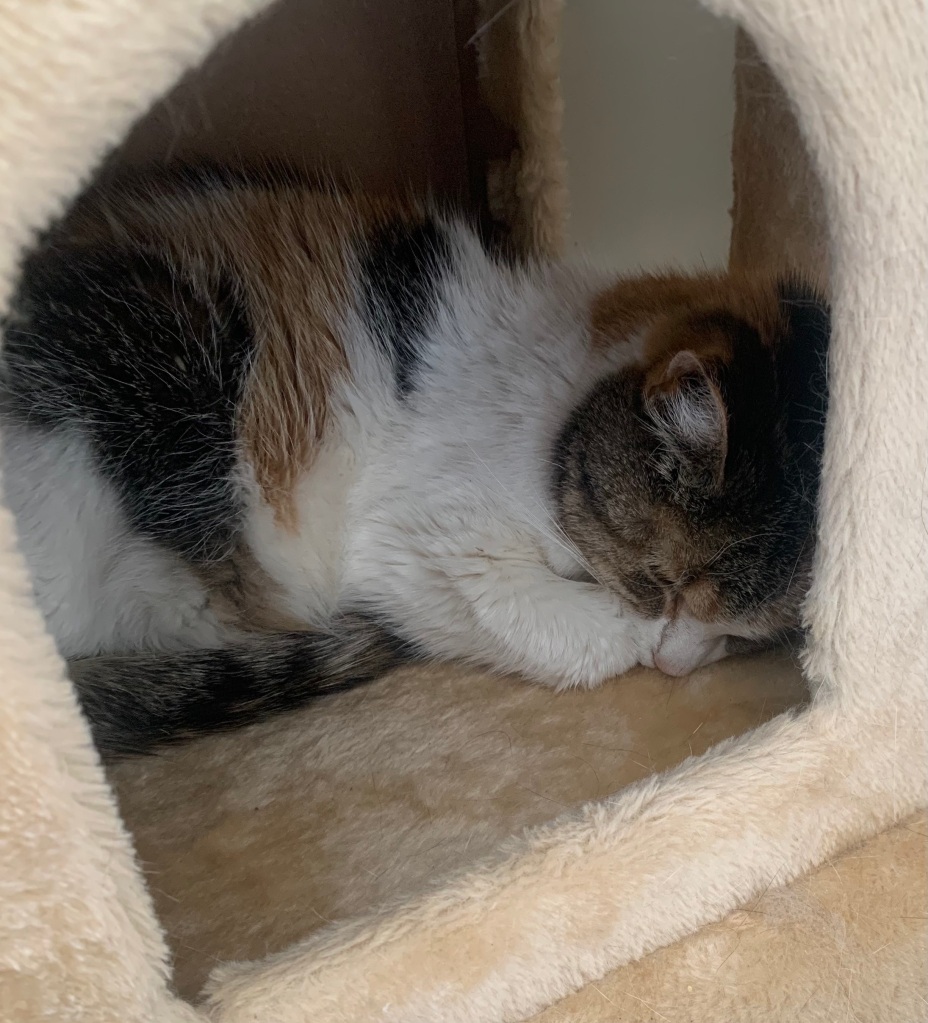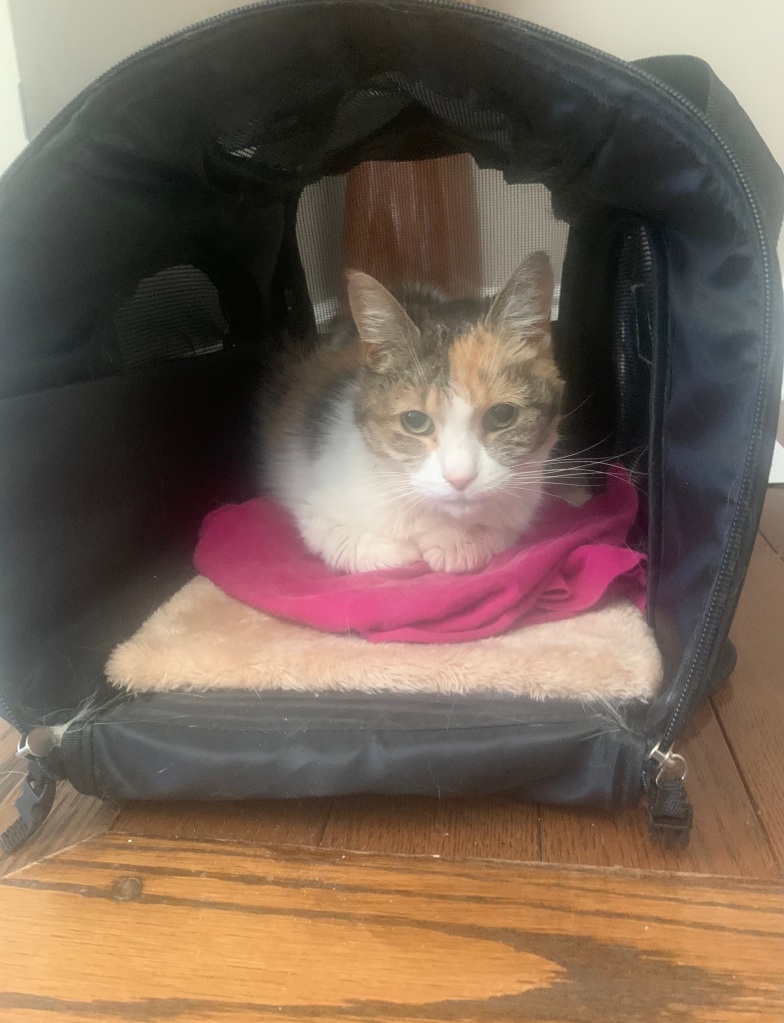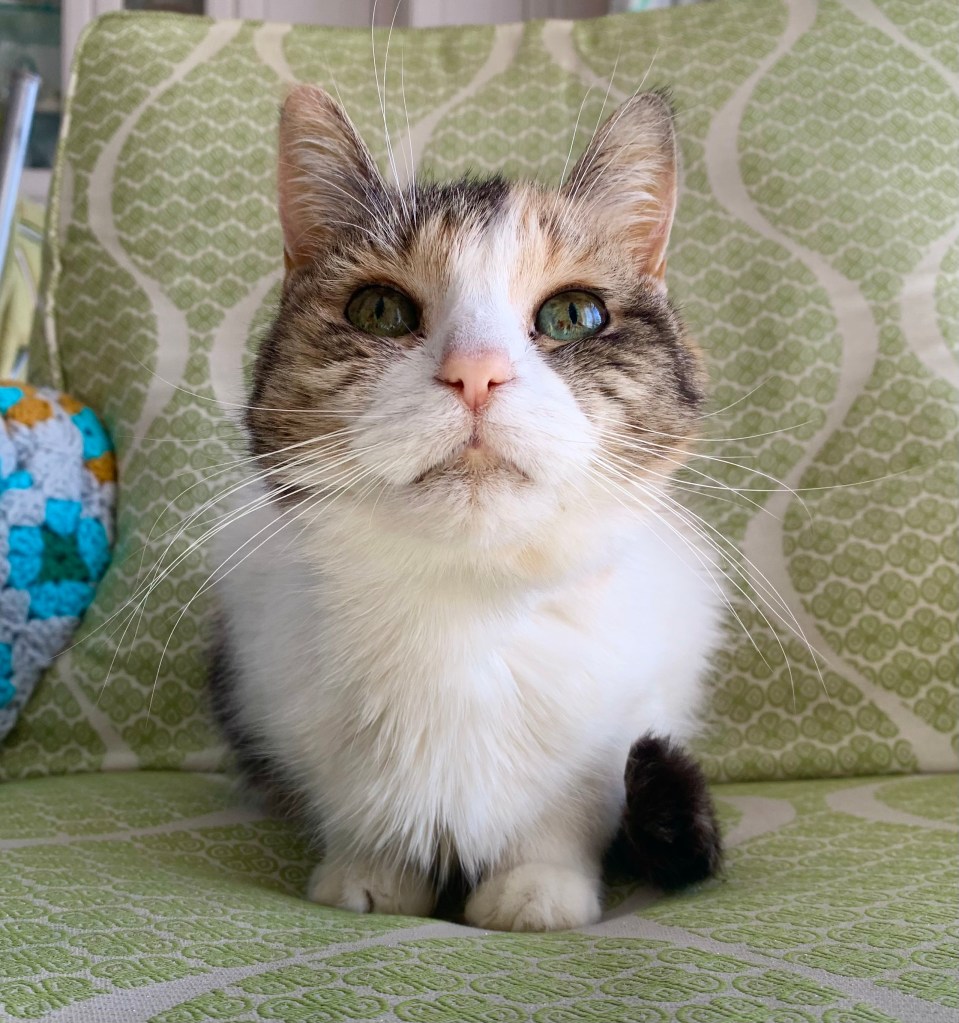I’m embarrassed to admit, that I succumbed to thinking the worst, when our dear cat of 14 years was very ill recently. She had stopped eating, had lost an alarming amount of weight, was jaundice, and her bloodwork results told a very grim story. I accepted that story. For days, I sat sobbing while trying to syringe feed her every few hours. We had a decision to make. I was sure of it.
Easy To Anticipating The Worst

It turned out that the decision was not the one that I thought we were making. I thought we were doing palliative care. We all did. We were preparing ourselves for the worst outcome. It’s called anticipatory grief:
“In addition to the range of grief reactions to the impending loss, there is also the inherent stress of caring for and meeting the needs of an ill pet while facing the daily caregiving dilemma of evaluating quality of life and end of life decision making. This hypervigilant state is mentally and physically exhausting…”*
We had a decision to make about whether to put her through an ultrasound, and possibly a biopsy, to confirm that she was dying. We almost didn’t do it. We almost let her go. It was a confusing time.
We Started To Cheer For Her

Ultimately we decided to follow hope and go ahead with the procedure. We became the cat’s cheering section, rather than mourning her before her time. As we spoke positively to her about her strength, we felt better about the outcome.
Positive Surprise
We were all (family and vets) astounded by the healthy liver that the ultrasound revealed. Upon further investigation her declining health was pinned on a complication from a new medication. I’m overjoyed to say she’s gaining weight, and has interrupted this blog post several times by walking across the keyboard, like a frisky kitten.

Anticipating her loss was harming our ability to stay positive, and surrounding her with sad, and miserable people. When we changed our mindset to seeing her as growing stronger, and capable of healing, we felt better and maybe she did too. It didn’t heal her, but it made her life and ours better.
I discovered afterwards that holistic animal practitioners recommend a positive attitude in these situations:
“When our animals are chronically sick, the kindest thing we can do is to be optimistic. We need to see past their ailing body and to visualise them as fit and healthy.”**
“The words that we say and the energy that we say them with are picked up by our animals, just like a sponge absorbing water…. Little changes to your thought process can have a huge impact on the well-being of your animal.” **
There really was no benefit to thinking the worst.
*For Information on pet loss and bereavement click here.
**https://animalwellnessguide.com/think-animal-well-power-positive-thinking/

What a beautiful cat! I’m glad you had a happy ending.
We had an older cat who ate that contaminated food from China a few years ago. We took her to the vet who gave her some medicine and told us we needed to give her subcutaneous fluids. My husband was sure she near the end. But we put her on an electric blanket and gave her the fluids. Within a couple of days, she was strong enough to fight off the fluids. She lived several more years.
LikeLiked by 1 person
Thank you. Thank you for sharing about your older cat. We’re also giving her subcutaneous fluids. It seems to help. I feel like I’m earning my vet tech. credentials with all the treatments and pills we do now.
LikeLiked by 1 person
They’re definitely little furry members of the family
LikeLike